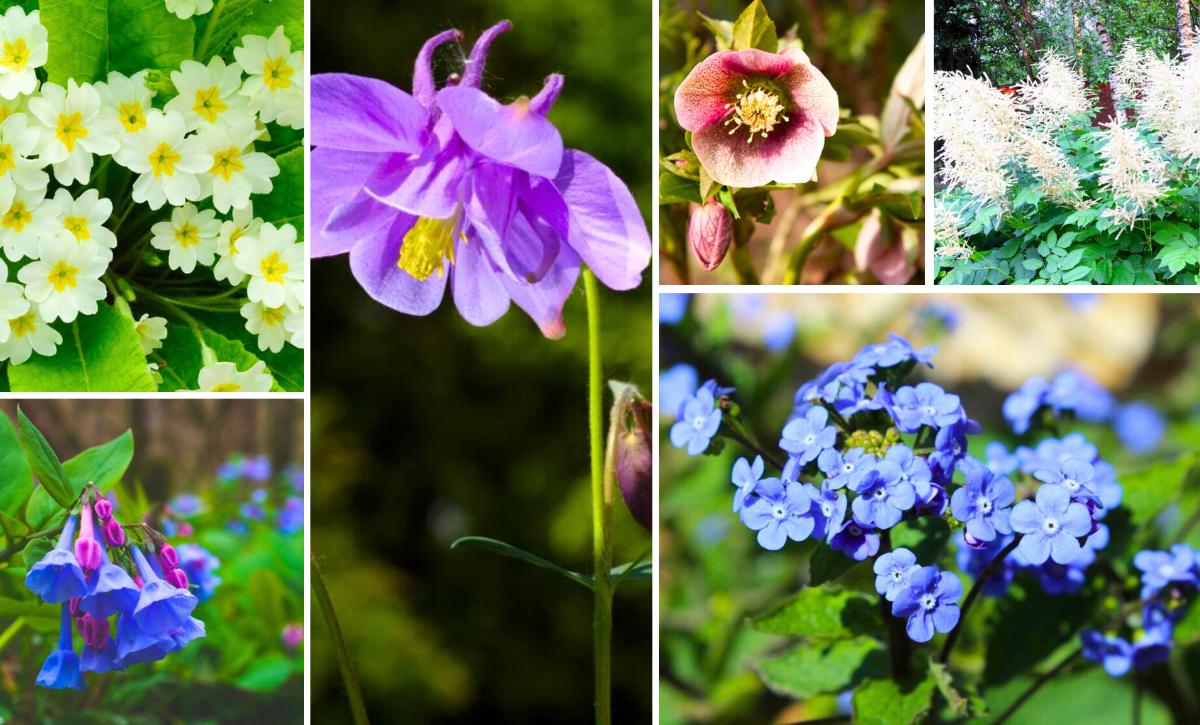There are many things that make turf grass wilt, such as salt sea spray, drought, or temperatures above 100℉. However, Bermuda grass is a relatively hardy plant under these conditions. This makes it suited for coastal regions and Southern states.
The only thing you have to worry about Bermuda grass is its nutrient requirements, high-maintenance care, and susceptibility to weeds like nutsedge, clover, and crabgrass.
If you want a good-looking Bermuda grass lawn, you probably have to apply a weed killer at one point. And that’s what we’re going to talk about today! This article will give you all the necessary information to keep your Bermuda grass looking pristine.
So keep on reading to find out more!
Choosing the Right Weed Killer for Bermuda Grass
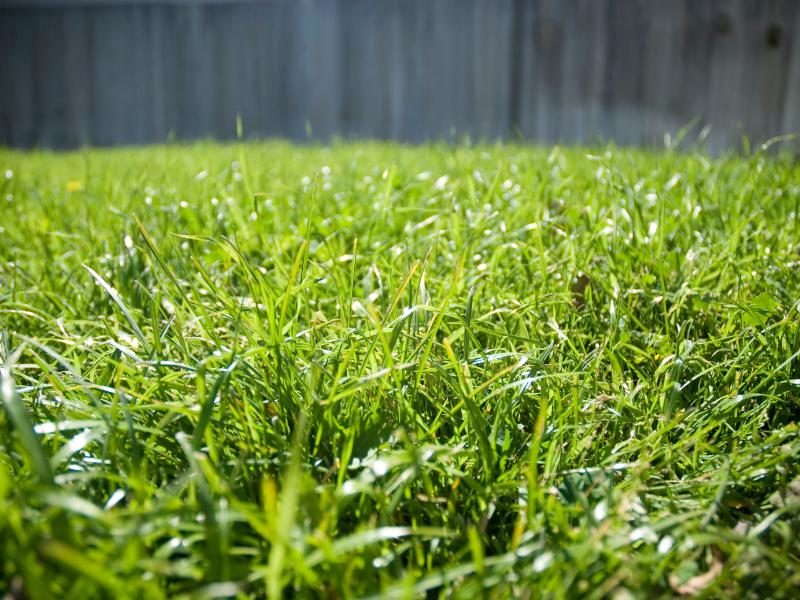
To keep your Bermuda grass weed free, you need to employ both targeted spot control and planned prevention. Post-emergent spot treatments kill weeds that have already sprouted, while pre-emergent treatments ensure the weeds don’t break through in the first place.
If your Bermuda grass also lacks fertilizer, options such as weed and feed products can take care of both your issues all at once.
Herbicides can be selective or non-selective. Selective herbicides kill a select category or species of weeds. In contrast, non-selective herbicides destroy everything they come into contact with.
Here’s more on different categories of weed killers:
Post-Emergent Herbicides
Post-emergent remedies usually deal with weeds already in their growing stage. That is, they’ve already emerged and are clearly visible.
Some post-emergent herbicides, such as cinnamon, lemongrass, and clove, are highly effective on young weeds. Conversely, others like glyphosate and dicamba have been made to handle more mature and stubborn weeds.
They kill through systemic absorption via the roots over several days or on contact within a few hours.
Pre-Emergent Herbicides
These work by destroying germinating weed seeds before they’ve sprouted from the soil. Some examples include Dithiopyr and Benefit. However, they don’t kill seeds that haven’t yet germinated or already developed weeds.
These herbicides prevent germinating seeds from penetrating above the ground by forming a toxic barrier. You must apply them before the beginning of the growing season for them to work.
Weed and Feed
These products have been specifically designed to do two jobs simultaneously: fertilize and control weeds. They save you money and time when done correctly.
Bear in mind that these products will not solve all weed problems, so be vigilant when choosing a weed and feed product for your Bermuda grass. Also, some products use post-emergent herbicides, and others pre-emergent, so the application time is also crucial.
The fertilizers present in weed and feed products also have different N-P-K ratios. Applying the product at the wrong time, or having too much of one ingredient, can potentially harm your Bermuda grass lawn.
Ensure you choose the right combination of herbicide and fertilizer if you plan on using a weed and feed product for your Bermuda grass.
Organic vs. Synthetic Herbicides
Organic herbicides are made from natural ingredients like acids and essential plant oils. These products are usually less toxic to animals and humans compared to synthetic herbicides, making them ideal for people with pets and children.
Organic herbicides are categorized as non-selective; hence you need to carefully apply them to post-emergent weeds to minimize risk to your Bermuda grass lawn. They become even less effective in cases where multiple application is necessary and when dealing with more mature weeds.
Synthetic herbicides, on the other hand, are selective and more preferred. However, they can be toxic to pets and humans. They may also cause groundwater contamination and damage the local ecosystem.
8 Best Weed Killers for Bermuda Grass
We’ve compiled a list of some of the most effective weed killers you can use on your Bermuda grass.
Don’t spray these products during high temperatures since they can cause a lot of damage, and remember, always follow the instructions on the package.
Let’s take a closer look at our top picks!
1. Scotts Turf Builder Weed and Feed
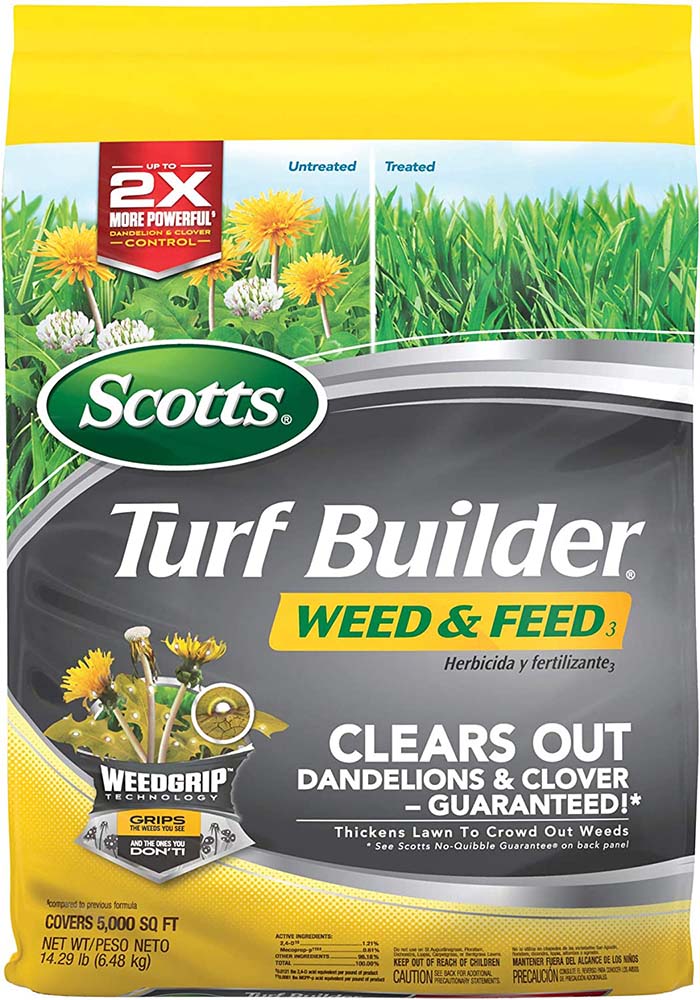
Pros
- Easy to spread and use
- 2-in-1 fertilizer and herbicide
- Covers up to 464.5 sq m (5000 sq ft)
Cons
- Takes almost two weeks before you see the results
This weed killer is best for removing dandelion and clover from your lawn. Since it’s a weed and feed, it also adds nutrients to the soil giving your lawn a spectacular lush green look.
Apply when weeds start emerging, normally in early spring. Follow the instructions on the package carefully to avoid scenarios of scorched or burned lawns, especially in dry environments.
2. Roundup Ready-To-Use Grass Killer III
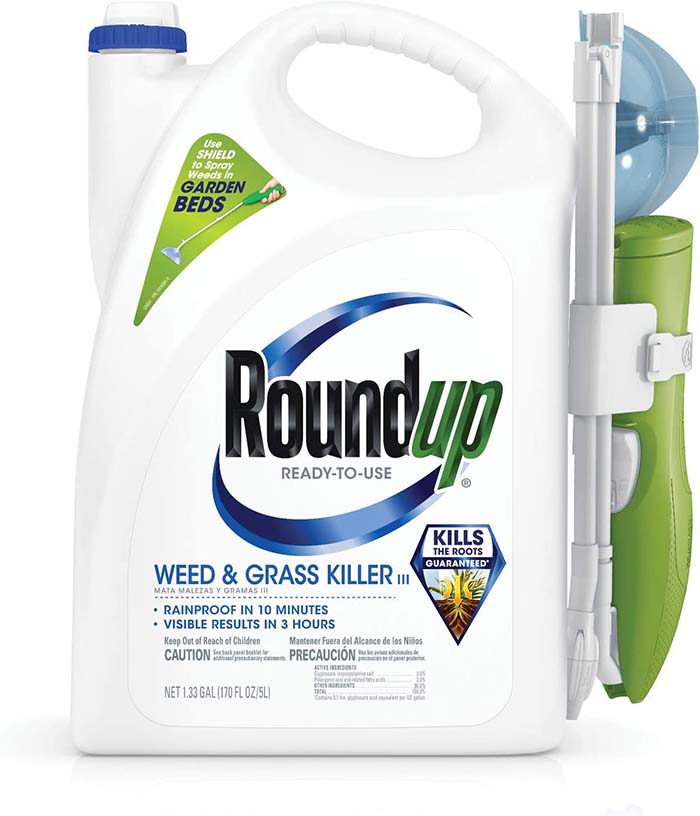
Pros
- Works quickly
- Easy to use
- Kills weeds to the roots
- Ready to use
Cons
- Can kill your grass when used in times other than the dormancy period
- Treats only up to 37 sq m (400 ft)
This product will work great around trees, vegetable gardens, and flower beds. However, be very careful if you plan on using it on your Bermuda grass.
This weed killer contains glyphosate, which can kill your bermuda grass if applied before the dormancy period begins.
If you have a lawn that’s green all year round, there’s a high possibility that this product will kill it. Nonetheless, it has a protective shield that allows you to limit the damage and spraying area of your lawn.
You should start seeing the results three hours after application. The weed killer is rainproof within ten minutes of application and can kill many varieties of weeds. Apply it during winter, and you won’t regret it!
3. Drive XLR8 Herbicide
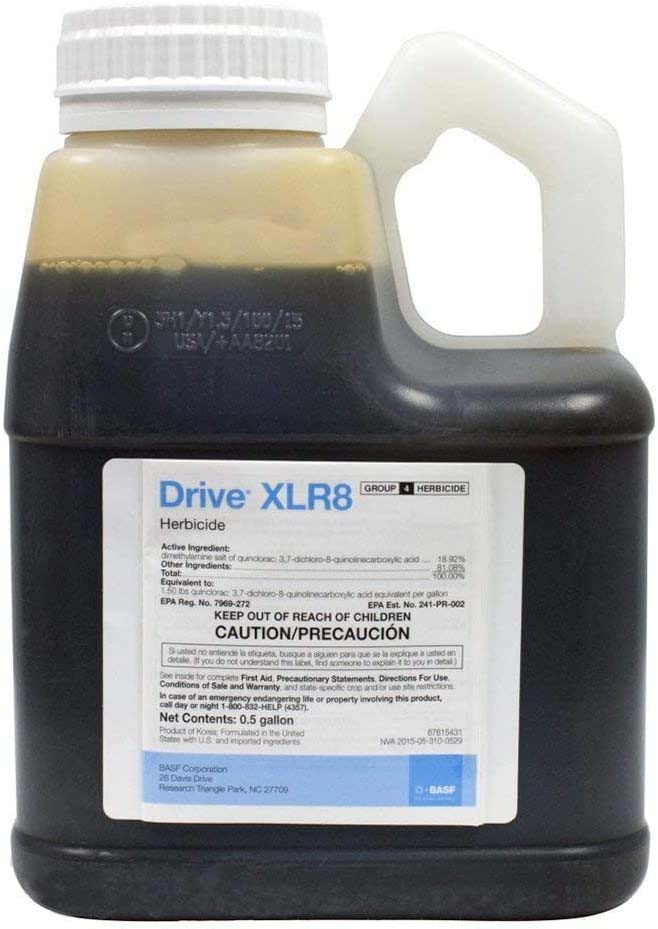
Pros
- Non-toxic to pets when applied according to instructions
- Eliminates stubborn, harmful plants like poison ivy
Cons
- Kills certain types of grasses
If you have post-emergent crabgrass in your bermuda grass, this is a great product. You can spray it directly on the weeds for large-scale clearance or spot treatment.
Use a surfactant or pre-water your lawn to help improve absorption in dry regions. One bottle can care for a large lawn, so you’ll likely use this product for several seasons.
If you have different types of grass in your lawn, read the product description carefully. This herbicide is safe for Kentucky grass, ryegrass, and Bermuda grass but will kill Bahiagrass and St. Augustine grass.
4. Southern Ag Amine 2,4-D Weed Killer
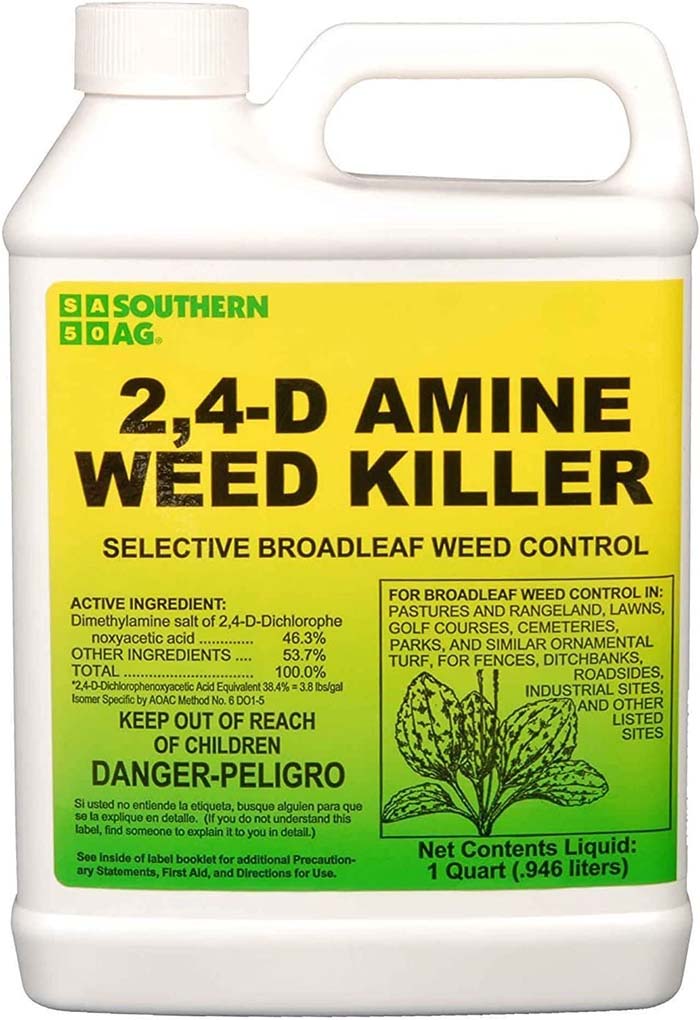
Pros
- Highly effective
- Economical
- Easy to mix and use
- Ideal for several ornamental turfs
Cons
- Can stunt bermuda grass growth
- Takes two weeks to kill weeds
The good thing about this product is that it has the chemical 2,4-D, which eliminates both grassy and broadleaf weeds. You can try using different herbicides, such as Quinclorac and Dicamba, but they all yield the same results.
Southern Ag Amine 2,4-D is ideal for parks, lawns, golf courses, pastures, and other ornamental turfs. With only 2-3 tablespoons dissolved in 11-19 l (3-5 gallons) of water, you can cover up to 93 sq m (1000 sq ft), making it very economical.
The herbicide is post-emergent and pre-emergent. Apply it using a low-pressure sprayer and a fan-like nozzle.
5. Harris 20% Vinegar Weed Killer
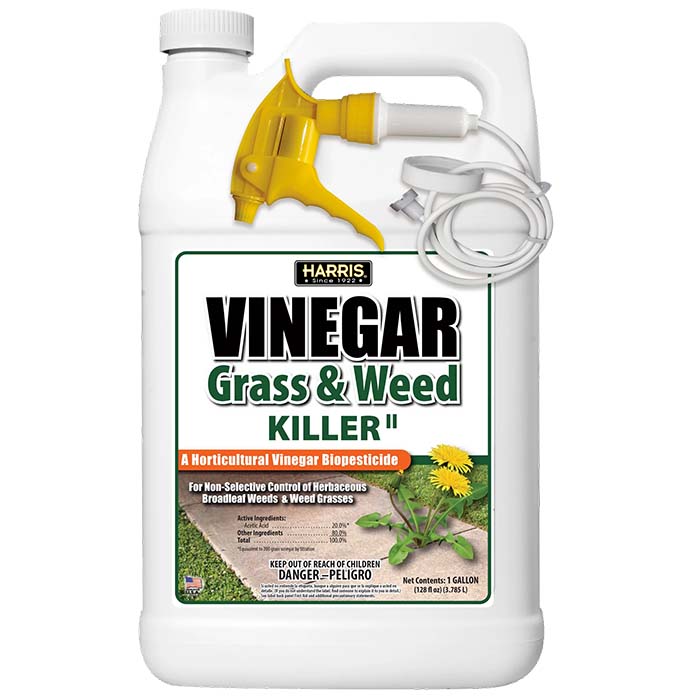
Available in Walmart: Walmart Link
Pros
- Ready-to-use spray form
- Acts very fast
- High concentration of vinegar
Cons
- Can harm your Bermuda grass
- Requires large amounts for large-scale weeding
This nonselective weed killer uses a high concentration of vinegar to kill weeds. According to a study done by Montana State University, household vinegar was found as an effective herbicide for weeds.
With that said, the 20% concentration in this herbicide is 4 times stronger than household vinegar. It kills weeds on contact instantly.
You don’t need to dilute or mix anything since the products come in a ready-to-use spray bottle. It can kill many varieties of weeds, including clover, dandelions, crabgrass, and more. Be careful not to harm your lawn since it’s a nonselective herbicide.
6. Syngenta Tenacity Herbicide
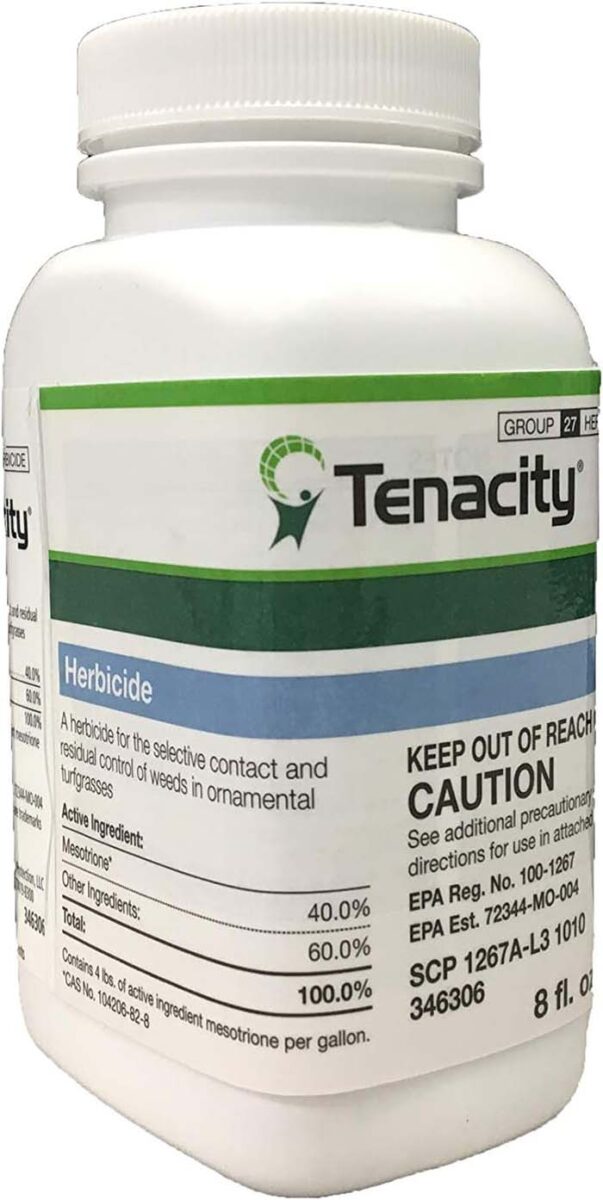
Pros
- Can be used any time you seed
- Pre- and post-emergent herbicide
- Controls over forty weed species
Cons
- Can harm warm-season grasses
Syngenta tenacity is best used with a surfactant but will do well on its own. The herbicide can handle over 40 dicot and monocot species, including sedges, crabgrass, yellow foxtail, and more. It contains mesotrione, which enables you to use it either as a post-emergent or pre-emergent herbicide.
You can use the product on newly started or established lawns. However, with regards to crabgrass, use it when the dormancy period begins to limit damage to your lawn.
The herbicide works by disrupting the photosynthesis process. You can use it on St. Augustine grass, bermuda grass, Kentucky bluegrass, ryegrass, fescue, and other cool-season grasses.
7. Espoma Organic Weed Preventer
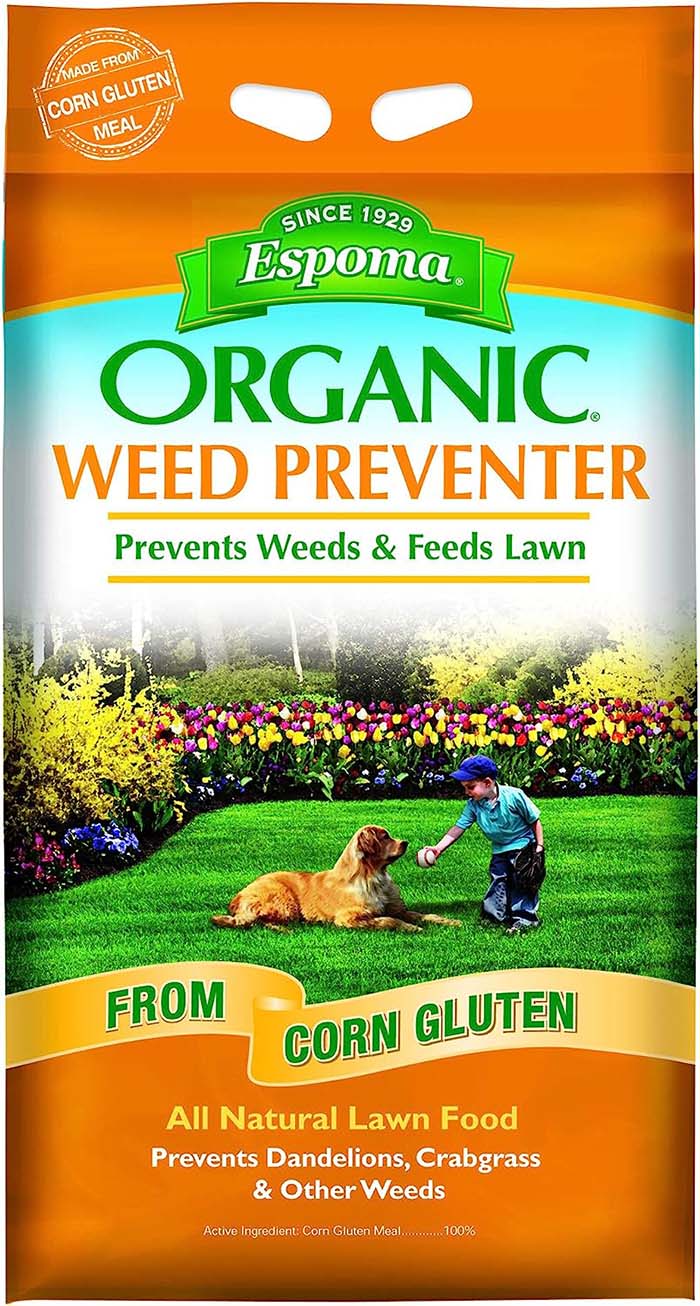
Pros
- Contains nitrogen for greening
- Safer organic ingredients
- Prevents weed seeds from sprouting
Cons
- Doesn’t kill existing weeds
This all-natural herbicide keeps weed seeds from emerging by forming a barrier on the ground surface. Since it’s a weed and feed product, it will also fertilize your lawn!
The active ingredient in Espoma’s weed preventer that prevents weed seeds from sprouting is corn gluten meal. Additionally, this organic alternative contains nitrogen which is essential for the vibrant green color and robust growth.
The herbicide is also non-toxic! So you don’t need to worry about children or pests. It is best to apply the herbicide twice yearly, in early spring and fall.
8. Prodiamine 65 WDG Herbicide
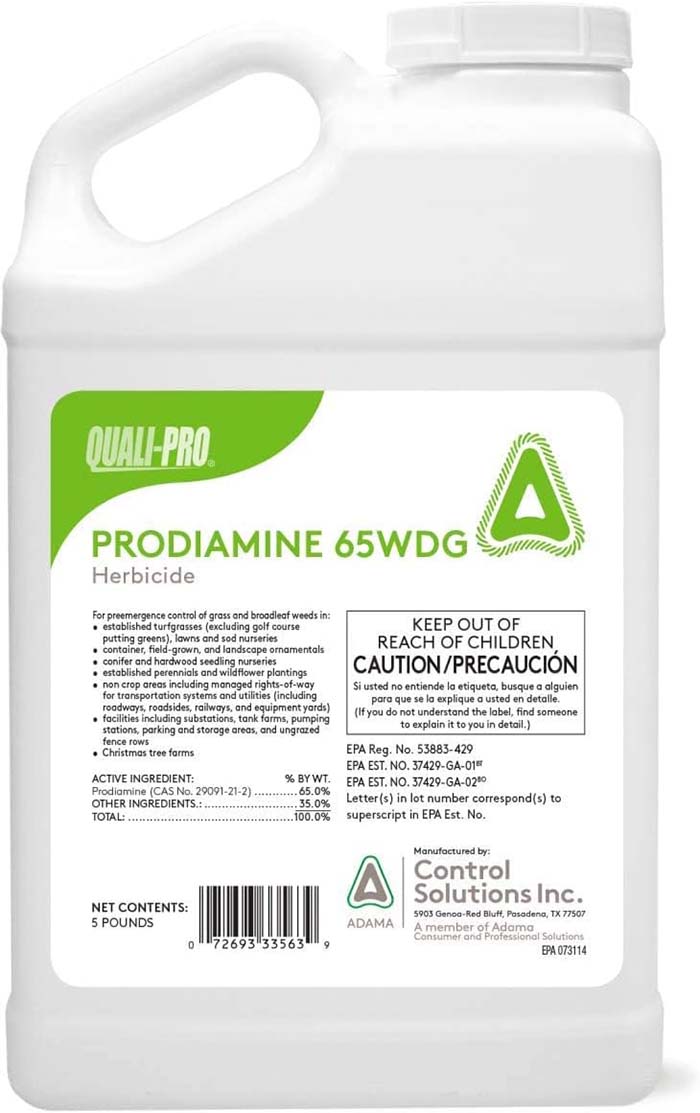
Pros
- Highly effective
- Can last a long time
- Easy to use
Cons
- Can reduce density and root growth of bermuda grass
The good news about this product is that only a small amount is needed for it to work. Furthermore, if you have a small lawn, it will serve you for years to come!
Normally, you should use 11g (o.4 oz) per 93 square meters (1000 sq ft) once a year, but you can also apply it twice a year for the best results.
In case you have any worries regarding scorching your lawn, simply cut the amount in half and use 5.5 g (0.2 oz) per 1000 square feet.
Prodiamine reacts differently with various types of grasses. For example, it can reduce the growth and root density of bermuda grass, ultimately reducing its ability to take the required nutrients. It has a worse effect on a fescue lawn. Still, zoysia has been documented to be pretty resistant to the herbicide.
Prodiamine kills all broadleaf weeds, so there is no need to worry about your annual crabgrass and bluegrass. Apply the herbicide in early spring and re-apply during fall for best results.
Bonus: Make a DIY Weed Killer
A DIY weed killer allows you to do away with harmful ingredients and is a relatively simple process.
However, you should note that most DIY weed killers are nonselective, so be careful when applying them to your lawn. Only treat small areas at a time when using nonselective weed killers.
Here’s a recipe for a DIY weed killer. Keep in mind that it’s also nonselective.
Ingredients
- About a gallon of water
- 1 cup of white vinegar
- 1 cup of table salt
- 1 tablespoon of liquid dish soap
Mix all the ingredients until all the salt dissolves; then, you can go ahead and use it! This weed killer effectively controls isolated weeds, such as on patios or pathways.
You can also use it sparingly on lawns. However, there’s a high risk your grass will be harmed when you use it.
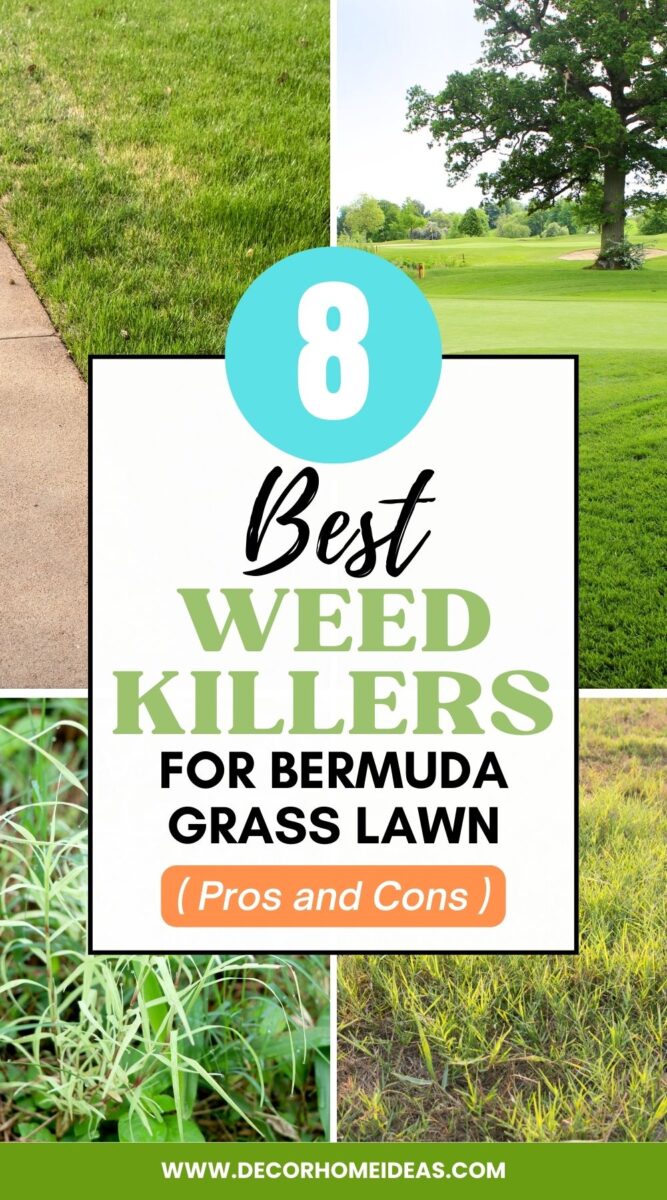
Final Thoughts
We have gone through some of the most effective herbicides you can use to control weeds on your bermuda grass lawn. However, each product that’s been listed works differently on various types of weeds, and it’s your choice to find the right one for your lawn.
You also need to be very wary of the type of herbicide you’re using, selective or nonselective. Nonselective herbicides will potentially harm your grass, so follow the instructions carefully to limit the damage. You can always take the safe option with selective herbicides, but you’ll have to be very specific with the types of weed you’re handling.
All in all, these products will be a huge step in keeping your bermuda grass clean and tidy!









